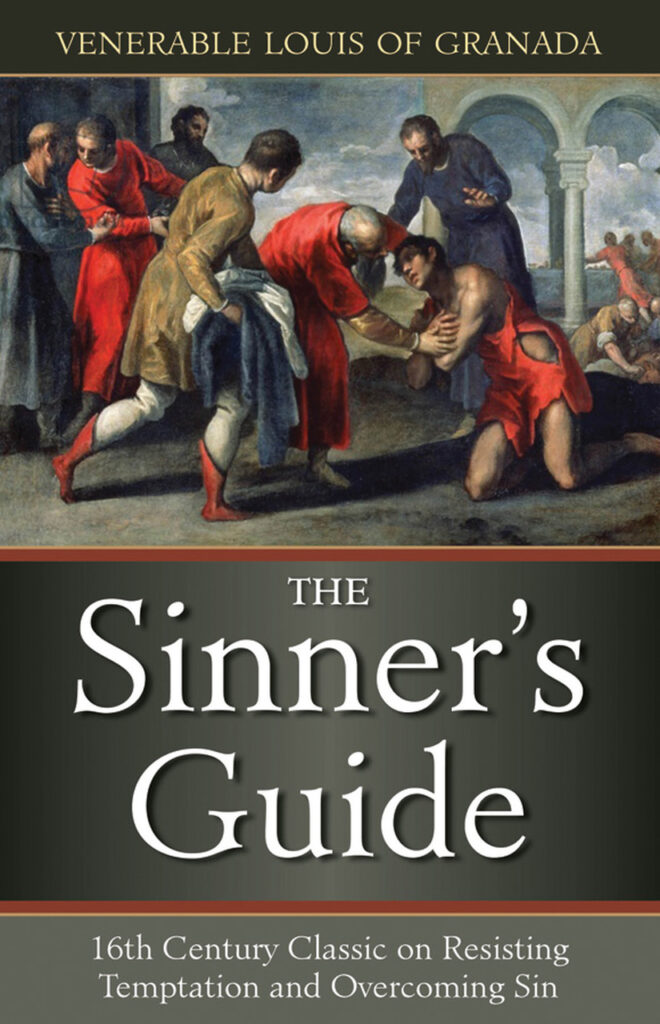The joy of a good conscience is always accompanied by that blessed hope of which the Apostle speaks when he tells us to rejoice in hope and to be patient in tribulation (cf. Rom. 12:12). This is the rich inheritance of the children of God, their general refuge in tribulation, and their most efficacious remedy against all the miseries of life.
Before entering upon this subject we must bear in mind that as there are two kinds of faith, one barren and dead, the other living and strengthened by charity, fruitful in good works; so there are two kinds of hope – one barren, which gives the soul no light in darkness, no strength in weakness, no consolation in tribulation; the other “lively” (cf. 1 Peter 1:3), which consoles us in sorrow, strengthens us in labor, and sustains us in all the dangers and trials of this world.
This living hope works in the soul many marvelous effects, which increase according as the charity which accompanies it becomes more ardent. The first of these effects is the strength which supports man under the labors of life by holding before his eyes the eternal reward reserved for him; for, in the opinion of the saints, the stronger this hope of reward the greater is man’s courage in overcoming obstacles in the path of virtue.
“Hope,” says St. Gregory, “fixes our hearts so steadfastly upon the joys of Heaven that we are insensible to the miseries of this life.” “The hope of future glory,” Origen tells us, “sustains the just under the trials of life, as the hope of victory supports the soldier during battle.” “If the furious tempests of the sea,” says St. Chrysostom, “cannot daunt the sailor; if hard frosts and withering blight cannot discourage the farmer; if neither wounds nor death itself affright the soldier; if neither falls nor blows dishearten the wrestler, because of the fleeting recompense they hope from their labors, how much greater should be the courage of a Christian, who is toiling for an eternal reward! Therefore, consider not the roughness of the path of virtue, but rather the end to which it leads; look not upon the pleasures which strew the path of vice, but rather upon the precipice to which it is hurrying you.”
Who is so foolish as willingly to pursue a path, though strewn with flowers, if it lead to destruction? Who, conversely, would not choose a rugged and difficult path if it lead to life and happiness?
Holy Scripture is full of commendations of this blessed hope. “The eyes of the Lord,” the prophet Hanani tells King Asa, “behold all the earth, and give strength to them that with a perfect heart trust in him” (2 Par. 16:9). “The Lord is good to them that hope in him, and to the soul that seeketh him” (Lam. 3:25). “The Lord is good, and giveth strength in the day of trouble, and knoweth them that hope in him” (Nahum 1:7).
“If you return and be quiet, you shall be saved; in silence and in hope shall your strength be” (Is. 30:15). By silence the prophet here signifies that interior calm and sweet peace experienced by the soul amid all her troubles, and which is the result of that hope in God’s mercy which expels all fear. “Ye that fear the Lord, hope in him, and mercy shall come to you for your delight. My children, behold the generations of men, and know ye that no one hath hoped in the Lord and hath been confounded” (Ecclus. 2:9, 11).
“Mercy shall encompass him that hopeth in the Lord” (Ps. 31:10). Mark the strength of this word encompass, by which the prophet teaches us that a virtuous man is shielded by God’s protection, as a king surrounded by his guards. Read the Psalms, and you will see how beautifully David speaks of the power and merit of divine hope.
In one of his sermons, St. Bernard dwells at some length on this virtue, and concludes by saying, “Faith teaches us that God has inestimable rewards reserved for His faithful servants. Hope answers, ‘It is for me that they are prepared’; and charity, inspired by hope, cries out, ‘I will hasten to possess them.’”
Behold, then the happy fruits of hope! It is a port of refuge from the storms of life; it is a buckler against the attacks of the world; it is a storehouse to supply us in the time of famine; it is the shade and tent of which Isaias spoke, to protect us from the heat of summer and the frosts of winter; in fine, it is a remedy for all our evils, for there is no doubt that all we confidently and justly hope from God will be granted to us, if for our welfare. Hence St. Cyprian says that God’s mercy is a healing fountain, and hope a vessel into which its waters flow.
Therefore, the larger the vessel the more abundantly will we receive of these waters. God told the children of Israel that every place upon which they set their feet should be theirs. So every salutary blessing upon which man fixes his hope will be granted to him. Hope, then, for all blessings, and you will obtain them.
This article is taken from a chapter in The Sinner’s Guide by Ven. Louis of Granada which is available from TAN Books.









